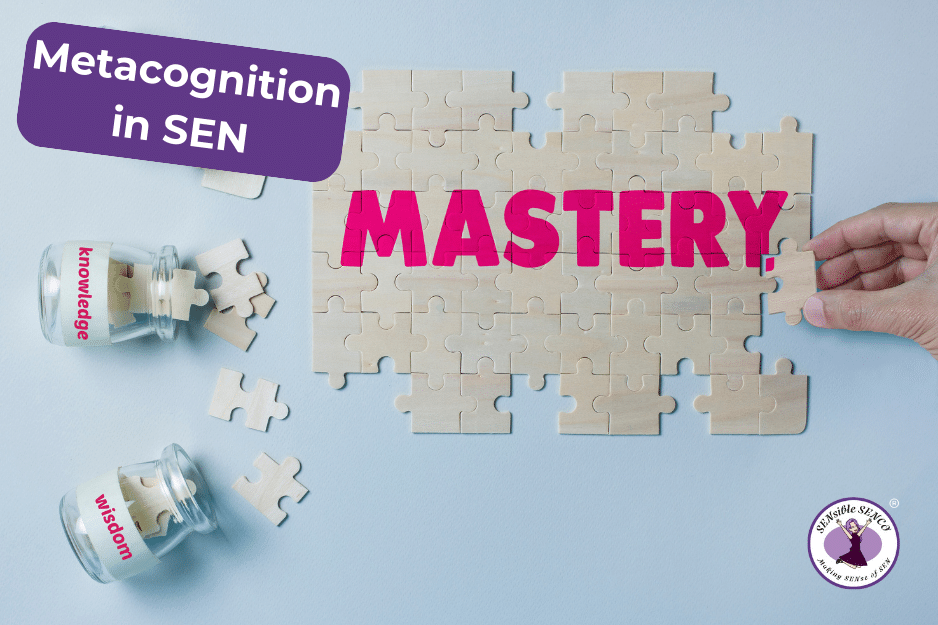Introduction:
Throughout this series, we have explored a range of metacognitive strategies designed to empower learners with special educational needs (SEN). In this final post, we reflect on the invaluable insights gained from each strategy and underscore the importance of seamlessly integrating them into daily teaching practices.
Recapping Key Insights:
- Think-Aloud Protocols: Encouraging students to vocalise their thought processes enhances metacognitive skills by rendering their thinking visible, fostering reflection, and enabling adjustments.
- Self-Questioning: Guiding students to ask themselves questions about their learning promotes self-monitoring, a deeper understanding, and independence.
- Error Analysis: Viewing mistakes as learning opportunities cultivates a growth mindset, self-reflection, and resilience.
- Goal Setting: Clear, attainable goals maintain focus and motivation, fostering self-regulation and ownership of learning.
- Graphic Organisers: Visual tools aid information organization and connection, enhancing metacognitive abilities through active processing.
- Peer Collaboration: Collaborative learning environments stimulate metacognitive development via discussions, strategy sharing, and feedback.
- Reflection Journals: Regular journaling fosters self-awareness, self-evaluation, and personal growth as SEN learners reflect on their experiences.
- Mnemonic Devices: Memory aids support information retention and retrieval, enriching metacognitive skills.
- Scaffolding: Providing support and gradually reducing it enables independent metacognitive strategy development, promoting self-regulation and confidence.
Integrating Strategies:
While each strategy offers unique benefits, seamless integration into daily teaching methods is pivotal. Educators can nurture self-regulated learners for lifelong success by:
- Explicitly teaching metacognitive skills: Model metacognitive strategies and gradually transfer responsibility to learners.
- Embedding metacognition in lesson planning: Design lessons that incorporate metacognitive reflection and application opportunities.
- Providing ongoing feedback: Regular feedback allows students to reflect on their progress, make adjustments, and further develop metacognitive skills.
- Promoting a supportive classroom culture: Creating a safe and inclusive environment encourages SEN learners to engage in metacognitive practices without fear of judgment.
Conclusion:
As we reflect on the diverse array of metacognitive strategies explored in this series, their potential to empower learners with special educational needs becomes evident. By seamlessly integrating these strategies into daily teaching methods, educators can nurture self-regulated learners poised for lifelong success, academically and personally. Let’s commit to ongoing implementation and refinement of these practices, ensuring that every SEN learner can unlock their full potential.




